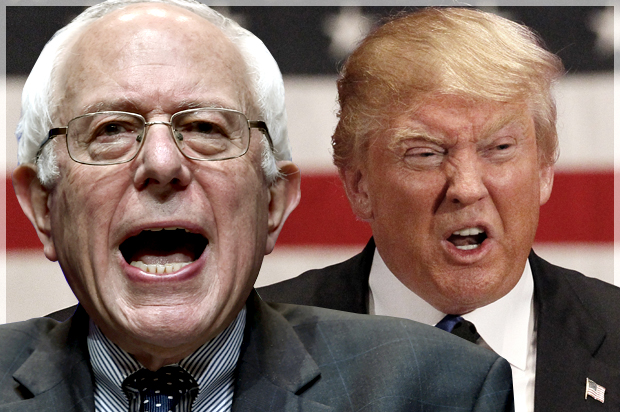What is it with conservatives never understanding the lessons of fairytales? A couple of years ago, political watchers found out that while Ted Cruz is a great fan of Dr. Seuss’s “Green Eggs and Ham,” multiple readings had apparently not been enough for him to absorb its real lesson. Now in the upcoming presidential election, the GOP could get a hard lesson from “The Boy Who Cried Wolf.” Maybe despite their sneering advice to college students to forego liberal arts educations, at least some of them should have majored in literature.
Let us savor the irony. The simple moral of “The Boy Who Cried Wolf,” as stated at the end of the Greek version of the fable, goes like so: “This shows how liars are rewarded. Even if they tell the truth, no one believes them.” After decades of crying wolf over various Democrats trying to turn America into a socialist dystopia, Republicans might finally face a self-described socialist in a presidential election at the exact moment that fear of socialism is at its lowest ebb in decades.
Much of the right-wing angst about a socialist takeover by the left goes back to the Cold War and the upheaval of the 1960s. So when Bill Clinton ran for the presidency in 1992, conservatives made much of his allegedly radical left-wing politics because he had protested the Vietnam War in the 1960s and later tried to dodge the draft. In 2008, the right tried to make President Obama out as a wild-eyed, radical socialist by suggesting his by-all-appearances-casual acquaintanceship with Bill Ayers and Bernardine Dohrn, who had been leaders of far-left groups Students for a Democratic Society and the Weather Underground in the 1960s, nearly 30 years before they met the future president.
The silly “socialism” smear was also thrown around for most of the policy proposals from the Clinton and Obama White Houses. Republicans damned First Lady Hillary Clinton’s healthcare reform plan as modern-day socialism even though “Hillarycare” in no way resembled a government takeover of America’s healthcare system. They later resurrected the critique for Obamacare, accusing this centrist, technocratic option of being the first step in turning American healthcare into something resembling that of the Soviet Union. Or worse, Sweden’s.
The net effect of all this outsized fearmongering, combined with the economic and social buffeting the United States has gone through over the last couple of decades, is that the word “socialism” has been denuded of the negative associations that scares the crap out of Fox News viewers. Polling over the last few years has shown Americans are much more receptive to some of what socialism has to offer and will not wet themselves in fear when they hear the word. This is particularly true of younger people who were in grade school when the Soviet Union collapsed. In 2011, a Pew Research Center poll found that 49 percent of 18-to-29-year-olds had a positive view of socialism. Considering the enthusiasm of that age group for Bernie Sanders, it seems safe to assume that number has at the very least remained stable, if not gone up.
So now we have the 2016 election where a major-party candidate is running as a self-described “democratic socialist” with a policy platform farther left of the center of American politics than any we have seen from a viable candidate in decades. Here is a man whose activism in the 1960s – including membership in the Socialist Party of America’s college affiliate and other leftist organizations – dwarfed Bill Clinton’s. A man who won four terms as Vermont’s socialist mayor at the same time that Clinton was a rising neoliberal star of the Democratic Party. A candidate whose leftist credentials on most issues are not remotely in dispute.
There is plenty of room to critique Sanders’s use of the word “socialist” to describe his policies, which really come more from the social democratic vision of the welfare state and not the “seize the means of production” school of radical socialism that Republicans have tried to conjure up with their rhetoric during the administrations of Clinton and Obama. But such distinctions will likely be lost on an American public that consumes its politics in soundbites.
Which is what makes the fearmongering that will likely be loosed on Sanders so ironic. Here, after decades of flat-out lying about the leftism of Democratic administrations (Bill Clinton was so centrist in some of his policies that some liberals will refuse to vote for his wife a decade and a half after he left office), the Republicans finally have a real-life 60s activist with a long history of arguing notably leftist policies to run against. And they could face him in a general election at a time when crying “socialism” will likely scare a far smaller percentage of American voters than it has in a hundred years.

